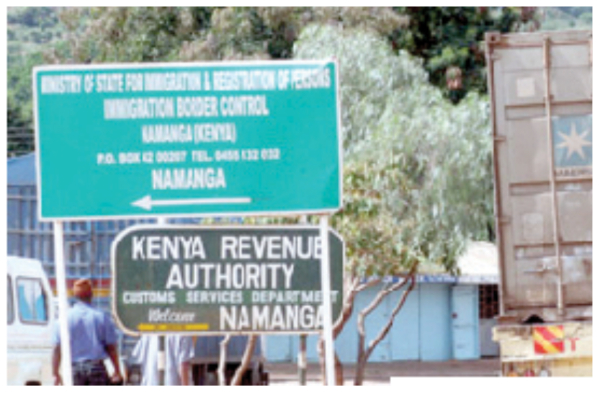East Africa private sector seeks end to ‘toxic’ taxes

East African states have been urged to fast-track elimination of discriminatory taxes if they are to boost cross-border and foreign direct investments.
East African Business Council (EABC), the regional apex body of private sector associations and corporates the partner states also need to accelerate harmonisation of domestic taxes within the bloc.
The Council’s chief executive officer John Bosco Kalisa noted that variations in tax policies are distorting prices and frustrating intra-EAC trade and investment.
“EAC Partner States should adhere to Article 15:2 of Customs Union Protocol that states what is needed for trade within the bloc to flourish,” he said during the Validation Webinar for the Study on Discriminative Taxes and Harmonisation of Excise Duties in the East African Community (EAC).
The article says that in part that no partner state shall impose, directly or indirectly, on the products of other members any internal taxation of any kind in excess of that imposed, directly or indirectly, on similar domestic products.
Free movement
Unharmonised taxes have identified as largely contributing to the low intra-EAC trade and cross-border investment and frustrating the free movement of goods, services, service suppliers, and workers.
The continued intra-EAC trade decline reflects a gradual loss of competitiveness among the region’s manufacturers compared with Asian exporters.
Also frustrating cross-border trade and investment is the increasing protectionism fuelled by political tensions among some member countries that have engulfed the region over the past couple of years – limiting attractiveness.
Other upshots include an unlevelled playing field for business and difficulties in marketing the EAC bloc as a single investment destination, according to Kalisa.
The harmonisation of domestic taxes is provided for in all stages of the EAC integration. However, EABC said that partner states have achieved little in this regard.
The EAC Agreement on Avoidance of Double Taxation agreed upon in 2010 has only been ratified by Uganda and Rwanda, while some EAC partner states have expressed fear of revenue loss due to the harmonisation of domestic taxes.
Despite the tax concerns, the intra-EAC trade accounting for imports and exports in the seven EAC Partner States, grew from 13 per cent in 2019 at a value of $ 7.1 billion to 15 per cent in 2021 at a value of $9.5 billion. And by September 2022, EAC trade value was recorded at $10.17 billion, representing a 20 per cent share of intra-trade to global trade. Trade within the EAC stood at US$10.17 billion as of September last year.
And as of January, this year, EABC metrics showed that the intra-EAC trade hit the US$10 billion mark as the bloc readies to send out Verification Mission Team to assess Somalia’s readiness to join the bloc.
The verification team comprising experts from EAC member countries is expected to give its verdict in establishing the country’s level of conformity.
Foreign countries
This follows their trip to Somalia in January and early this month with the criteria for admitting foreign countries as provided in the Treaty for the establishment of the EAC.
East African Community has several treaties and agreements which often seek to advance negotiations on services and trade-related rules in the future.
Some of those regional rules have seen the ban of unjustified or discriminatory restrictions on imports and exports, which has helped the EAC’s efforts to eliminate non-tariff barriers in intra-EAC trade.











